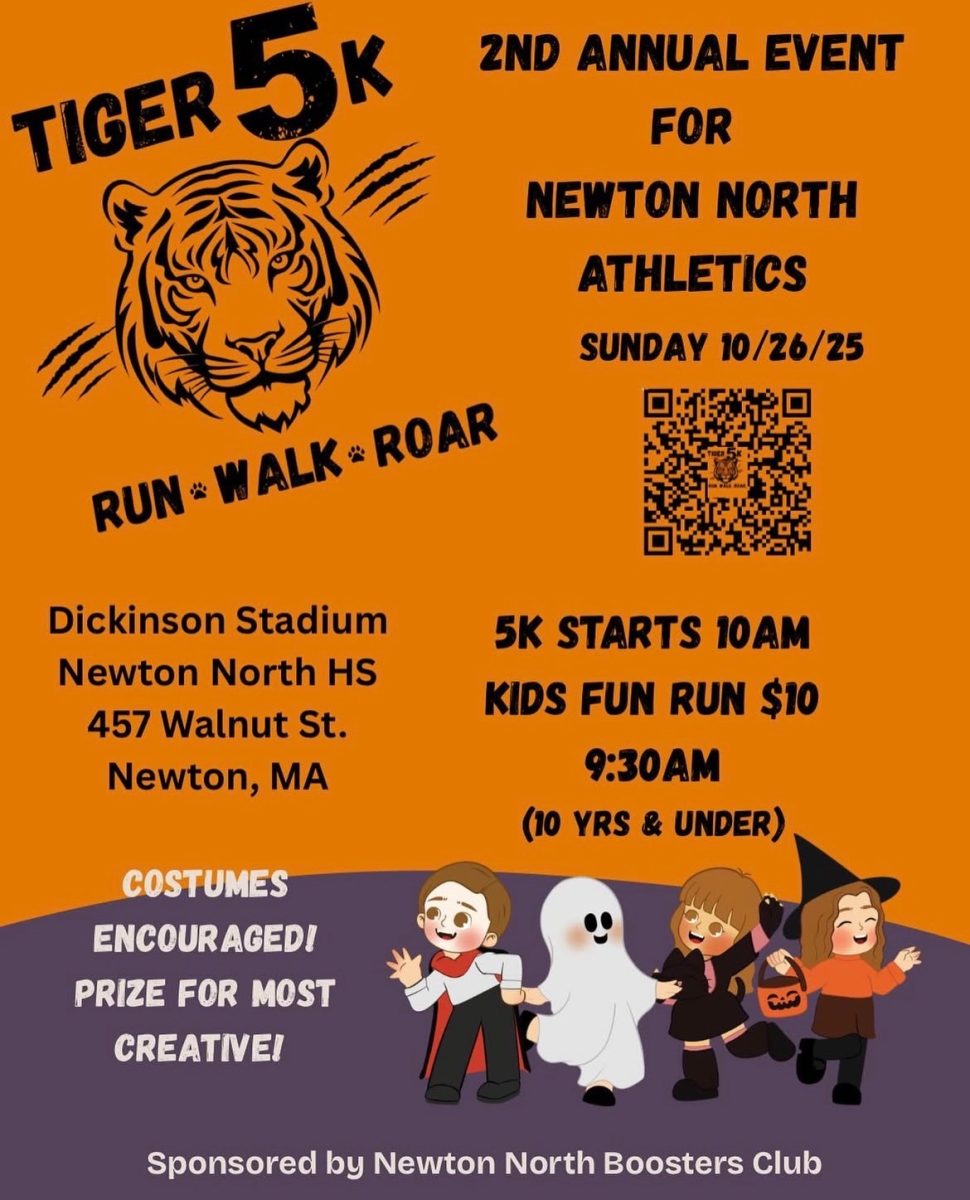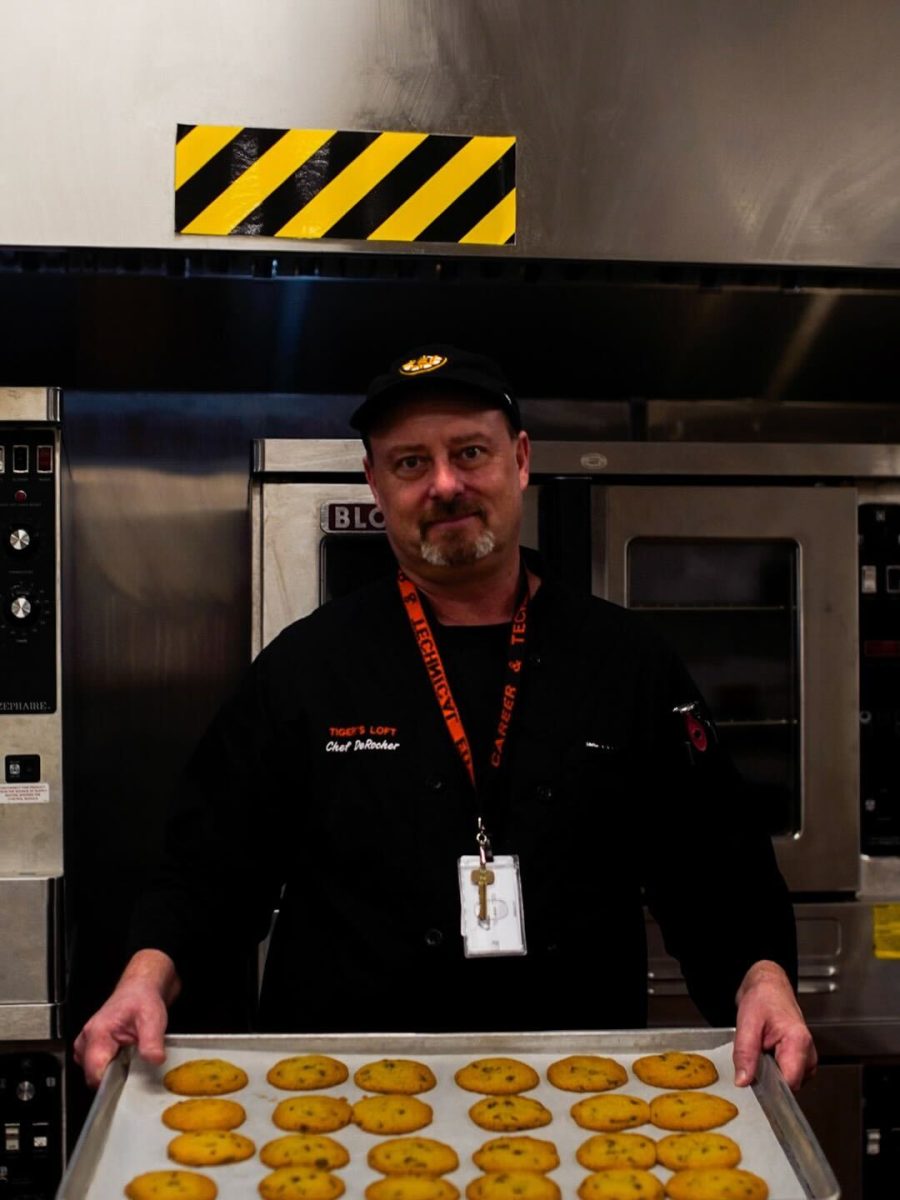 [/media-credit]
[/media-credit]
- Students from six different schools come together to train and complete the Cox Providence Marathon Sunday.
by Julia Oran
“Running a mile used to be exhausting. It was something I was never good at and never liked,” said freshman Sarina Wolfe.
However, Wolfe said her soccer coach, special education teacher Leigh Paris, mentioned Dreamfar High School Marathon to her at the end of the soccer season because Paris had participated the year before and enjoyed it.
“I wanted to run a marathon because it is quite a challenge. It is a different kind of challenge than I’m used to, and I thought it would be very fun to test myself,” Wolfe said.
Students from this school, Brookline, Charlestown, Sharon, South and Urban Science Academy can train with Dreamfar to turn the dream of running a marathon into a reality.
Dreamfar trains students at participating schools to complete the Cox Providence Marathon or half marathon, which is Sunday, according to its website.
Academic support teacher Drew Pierce said there will be five students from this school running the full marathon and five running the half.
He added the captain of this school’s team, senior Manny Lopez also “did an excellent job not only completing the Boston Marathon but also providing leadership and support to the team throughout the year.”
This is Pierce’s second year as the lead coach of this school’s team and he said, “We have a great team because we have a good mix of different personalities and tons of enthusiasm. It’s great that we have at least one student from each grade participating on our team this year.”
Jamie Chaloff, Dreamfar’s founder and a special education teacher at South, said, “Training for a marathon helps to put your life in order, set goals and helps you to achieve things you never thought possible. I knew I could teach these lessons to high school kids who may or may not be struggling in school or struggling to connect to achieve greatness.”
Chaloff said shortly after she ran her first marathon about eight years ago, she decided to start Dreamfar.
She said the mission of Dreamfar is to “to challenge high school students to reach their full potential—academically, physically, socially and emotionally—through a mentor-supported marathon training program. Our vision is to ensure every high school student in New England has the tools to succeed in school and beyond.”
Chaloff started the program at South with nine students who she said trusted her when “I told them I could help them change their lives, the way they viewed school and homework and give them the confidence they were lacking.”
She convinced some of her friends to join, enlisted a coach and “the rest is history,” she said.
The name “Dreamfar” was the name of their first coach’s training company and “I loved it,” Chaloff said.
 [/media-credit]
[/media-credit]
- Junior Maeve Sockwell, special education aide Natalia Shulman and junior Rowan Sockwell pose for a photo in their Dreamfar jerseys.
“So much of what we do in Dreamfar High School Marathon is about dreaming and reaching for the impossible and making the impossible happen––the names fits so well––I adopted it,” she said.
According to its website, Dreamfar specifically targets students who are struggling in school or considered at-risk.
“Some students are recommended for the program by guidance counselors, special education teachers, housemasters, wellness teachers and their general education teachers. The richness of the program comes from the mix of kids we attract and those who are recommended,” said Chaloff.
She said the way the program is structured helps all students because they begin training with very low mileage, “and as we build mileage student’s confidence starts to improve.”
Chaloff said that the students start training in November and work their way up to 20 miles to help with “endurance, injury prevention and confidence building.”
Wolfe said, “I didn’t go into Dreamfar with the goal of running a marathon in mind—I just wanted to stay in shape without doing a winter sport. With five months of training and about a week away from the actual marathon, I’m really excited to run.”
She added that despite her previous aversion to running, Dreamfar has now turned her into a runner, and “running is something I really enjoy now, and I’ll probably do cross country in the fall.”
In addition, Chaloff said, “We also teach skills like setting realistic goals, following through with them, discipline and hard work. Everything we teach on the road transfers over to the classroom.”
She added that students must have “no other commitments during the weekdays we train and on Saturday. One cannot fake a marathon. Unless you have the time to train properly, the process can be very tough both physically and mentally.”
Wolfe said she would advise students who wanted to try Dreamfar “to make sure that you’re totally committed. Just like a sport, it takes up a lot of time and participating in marathon club means that you can’t do a winter or spring sport.
“Running the distances that we do is very tiring, especially after school. It takes a toll on the body, and some people have even gotten minor injuries.”
So far, Dreamfar has trained more than 80 students to run and complete half and full marathons, according to its website. One hundred percent of those students graduated high school, and now, 95 percent are attending a college or university.
Chaloff said she hopes that in the future, Dreamfar can be in every school in New England “helping as many students as possible achieve their goals, stay in school, graduate and go to college. I understand that this process will take some time, so patience is something I am working on.”
 [/media-credit]
[/media-credit]
- Sharon juniors Nicole Kurlyandchik and Alice Lang, freshman Sarina Wolfe and academic support teacher Drew Pierce pose for a picture after one of Dreamfar’s training runs.
Another thing Chaloff said she is working on is fundraising. The program is “currently funded through a grant from the Newton Partnership, other foundation grants, individuals and in kind donations,” but “we are planning to have a dance-a-thon next November as our first big fundraiser.”
She said, “I’m a special education teacher who is starting to learn the fundraising ropes—I wish I were learning it faster.”
Despite the difficulties of fundraising, Chaloff said that the most rewarding part of Dreamfar is “seeing the growth in all of our students, both on and off the road.”
Wolfe said, “My favorite thing about Dreamfar is the environment. Everyone is so nice and supportive. It’s very noncompetitive too, because everyone has the same goal in mind.”
Similarly sophomore Amelia Williams said she enjoys “the sense of community created. It is such a kind environment because there really is no competition—it truly is about having fun.”
Pierce also said, “My favorite part of Dreamfar was seeing the team come together as a group and take on a long and challenging training program.”










































